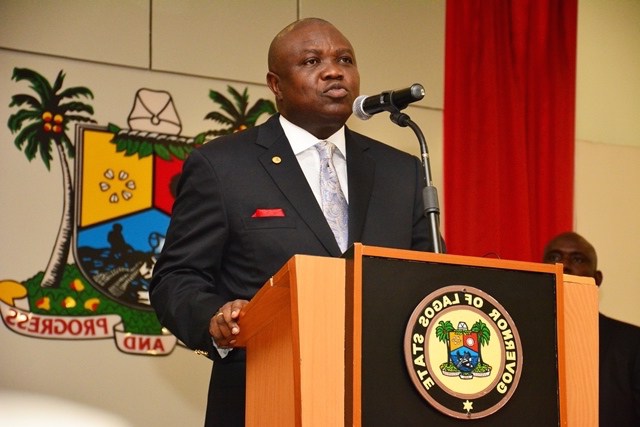Ambode, Clean Up The Refuse Mess

With a steadily rising population, Lagos is experiencing the difficulties associated with its megacity status. There is growing destitution; unbearable traffic congestion, as well as crime and infrastructure deficiency; but the most pressing appears to be the return of heaps of refuse in the metropolis. From Oshodi to Obalende, Alimosho to Surulere and Yaba to Lagos Island, huge piles of waste confront residents. This is a nightmare. Governor Akinwunmi Ambode should initiate radical measures to clean up the refuse mess.
With an eye on cleanliness to go with its rating as Nigeria’s commercial hub, Lagos, under previous administrations, had developed a workable waste management system. A pragmatic system, it combined public sector regulation with the shrewdness of the Private Sector Participation. Through the arrangement, the PSP rid the city of waste, especially at road medians, bus stops and markets.
Unfortunately, the system was broken in 2017. It all started with a reform by the state government to make the PSP operators the major beneficiaries of the income generated from waste collection. This scheme, which boosted the PSP operators, was, however, controversially abandoned by the state government not too long after it came into operation.
In its place, the government introduced the Cleaner Lagos Initiative in favour of a sole waste management company, Visionscape, which is affiliated to a foreign firm. To all intents and purposes, the arrangement to contract the waste management in Lagos, with a population estimated at 22 million – and growing – to a single company, has failed. It has become an albatross for the Ambode government and a filthy sore for the residents.
Lagos residents, who had taken waste collection for granted for over a decade, are scandalised that refuse has returned in full force. At every turn, the stench is overpowering. Roads are being taken over by refuse; markets have become a breeding place for decomposing waste and rodents. Cart pushers are back on the roads. According to the Lagos State Government, the residents generate 14,000 metric tonnes of waste daily or 420,000 MT monthly. During festive periods, up to 35,000 MT is generated daily.
In contrast, Tokyo deploys advanced waste disposal technology to make the Japan capital one of the cleanest cities in the world. The technology, which is attracting global interest, incinerates the waste being generated by its nine million population at a temperature of 800 degrees Celsius.
In truth, Lagos is toying with the health of its citizens. Health experts state that the situation poses grievous health hazards to the people. When garbage bins overflow and are left uncollected, bad odour and air pollution are unavoidable.
A report says that overflowing garbage creates an ideal breeding ground for bacteria, insects, rats and vermin, which could cause typhoid fever, food poisoning, enteric fever and gastroenteritis. In these days of Lassa fever and Ebola Virus Disease outbreaks, decomposing refuse is doubly dangerous. Similarly, garbage and liquid waste end up contaminating water bodies. It is said that the direct handling of overflowing decomposing garbage exposes waste collection staff to infections, chronic diseases and accidents. Respiratory diseases are common in dirty cities.
However, the Ambode government claims to be making amends. It has tried vainly to reduce the activities of the informal cart pushers. These illegal operators constitute a menace of their own. After collection, they dump refuse indiscriminately on the roads and use it to block drainage. During the rainy season, the roads are flooded with waste.
Under renewed pressure, the government gave the assurance last weekend that it would turn the situation around. It said Visionscape was collaborating with stakeholders to “make the heaps of refuse disappear from the streets in (a) few days.” This is a welcome development, but it is not simply about making promises; it should be fulfilled.
To make refuse management effective, Lagos should adopt technology, separate different categories of waste and install solar-powered trash compactor bins, as is being done in some smart cities. The remaining refuse will be cleared by the compactor trucks. Faced with a similar challenge, a former governor of Tokyo, Ryokichi Minobe, declared a “war on garbage” in the city in 1973. By year 2000, Tokyo had started overcoming its waste challenges, according to the city’s waste management official records. From a peak of 4.9 million MT of waste in 1989, waste had reduced to 2.7 million MT in 2014, a significant decline aided by the use of technology and an awareness campaign with the theme: “Reduce, Reuse, Recycle.”
Normally, a refuse dump in the middle of a city is an eyesore and hazardous, evident in the dumpsite at Ojota. Going by this premise, the Olusosun refuse dump, which was gutted by fire in March, will inevitably close down. A state government proposal to create a new dumpsite in Epe is thus apt; it should be consummated. To make the project worthwhile, the LASG should equip the new site with modern facilities to incinerate the waste efficiently.
![]()






